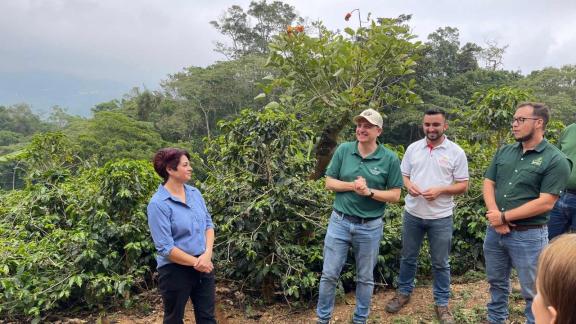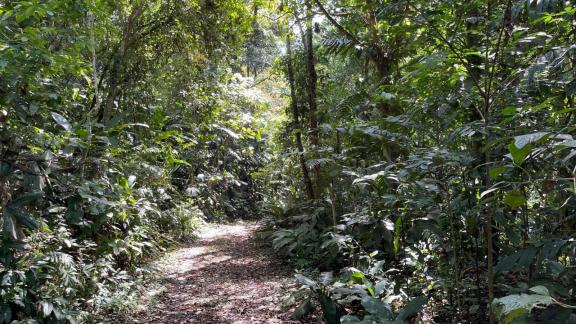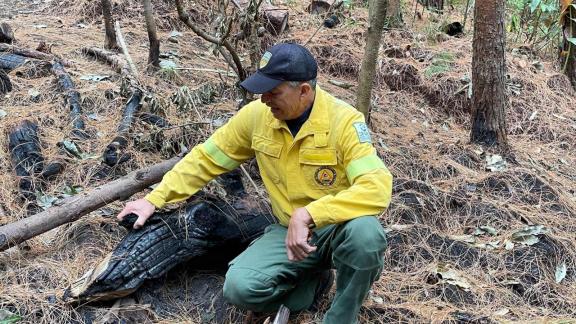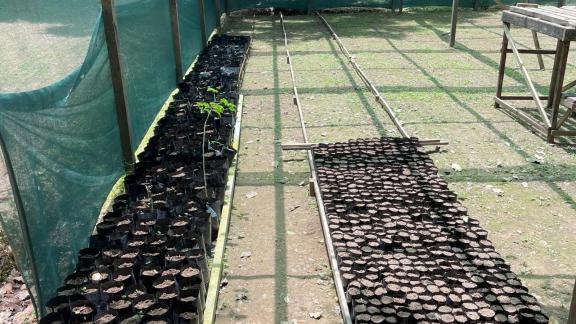REDD+ Results-Based Payment Pilot Projects: Enhancing Climate Action in Latin America and the Caribbean
During the 37th session of the Green Climate Fund (GCF) Board in October 2023, the Independent Evaluation Unit (IEU) presented its proposed Work Programme and Budget for 2024. The document committed the IEU to completing an Independent Evaluation of the Relevance and Effectiveness of GCF’s Investments in the Latin America and Caribbean States by the final Board meeting in 2024. During the evaluation, the IEU was asked to focus on projects approved under the REDD+ Results-Based Payment (REDD+ RBP) pilot program. The IEU has competed this Special Study on REDD+ results-based payment projects. It highlights common findings and lessons across seven relevant projects to inform the redesign of GCF’s REDD+ RBP program.
Coherence and Complementarity: A Harmonious Approach to Climate Finance
GCF has funded REDD+ RBP projects in Latin America in a complementary manner, enabling countries to link RBP funds with wider financial resources. First, through amplifying resources via co-financing and blending. Second, through financing complementary upstream and downstream interventions.
For instance, Colombia, Costa Rica, and Ecuador have successfully leveraged RBP funds to secure support from other international sources. Colombia’s initiative is particularly noteworthy as it combines GCF funds with bilateral support from Germany, Norway, and the UK under the REM Vision Amazon Program.
Similarly, Costa Rica has extended its Payment for Environmental Services approach to a broader population by blending GCF and Forest Carbon Partnership Facility (FCPF) funds. Ecuador's PROAmazonía Program integrates GCF RBP funds with projects funded by the Global Environment Facility (GEF) to support its National REDD+ Action Plan.
In addition, the financing of complementary upstream and downstream interventions is a further critical strategy. In Paraguay, the FCPF supported the preparation phase for REDD+ from 2017 and 2021, meeting the four pillars of the Warsaw Framework, and aligning with the broader aims of the REDD+ RBP project. In Chile, FCPF support helped develop a system for capturing and storing emissions reduction data. This dataset was instrumental in the funded GCF RBP REDD+ proposal. Similarly, in Costa Rica, FCPF supported the National Fund for Forestry Financing in developing a GIS-based monitoring, reporting, and verification system to track all ongoing environmental services, including for GCF’s REDD+ RBP financing.
Involvement of Local Stakeholders: Ensuring Inclusive Participation
A volunteer demonstrates recent fire-affected areas in Parque Nacional Irazú utilizing GCF-supported equipment, highlighting the importance of fire management in preserving Costa Rica’s forests.
Local communities and Indigenous Peoples are central to the success of REDD+ initiatives. Their traditional and technical knowledge and close relationship with the environment make them invaluable partners in conservation efforts. The REDD+ RBP projects prioritize their involvement through:
Consultation Processes: Regular consultations with local communities and Indigenous Peoples ensure that their voices are heard and their knowledge is incorporated into project planning and implementation.
Working Groups and Steering Committees: These structures provide a formal platform for local stakeholders to take part in decision-making processes, ensuring that their interests and concerns are adequately represented.
Argentina, for example, has incorporated multiple stakeholders including native communities, NGOs, actors in the agricultural sector, academics, and the government, aiming for a cross-cutting, coordinated, and effective implementation to avoid conflicting policies and regulations. This has helped to ensure coordinated implementation of its national REDD+ strategies. Brazil has taken a proactive approach by launching a website that provides stakeholders with access to relevant information and data, thereby promoting transparency and participation.
Costa Rica's extensive stakeholder participation processes, conducted over decades, have been instrumental in ensuring social and environmental safeguards. Similarly, Colombia and Chile have developed robust participation mechanisms to ensure stakeholders can effectively engage in REDD+ initiatives.
Potential for Sustainability: Building a Lasting Impact
The sustainability of REDD+ RBP projects is underpinned by strategic reinvestment, institutional strengthening, and the establishment of essential processes and instruments.
Reinvestment of proceeds is a critical strategy, with stakeholders advocating for continuous GCF financing to maintain a virtuous cycle of results and reinvestment contributing to long-term conservation, restoration of forest resources and sustainability.
Institutional strengthening is also important. Costa Rica and Chile have implemented stringent auditing and monitoring processes, fostering a culture of verification and oversight. This not only enhances confidence in the initiatives but also aids in securing future financing. Paraguay’s plan to create the National Climate Change Fund to promote climate finance is a forward-thinking step that will contribute to the sustainability of current and future actions.
The REDD+ RBP pilot projects in Latin America and the Caribbean exemplify how coherence and complementarity, coupled with active local stakeholder involvement and strong potential for sustainability, can drive effective climate action. By continuing to build on these strengths, the REDD+ initiatives can pave the way for a greener and more sustainable future.
The special study can be accessed here
A wider IEU evidence review on the factors that moderate the effectiveness of Payments for Environmental Services can be accessed here.



